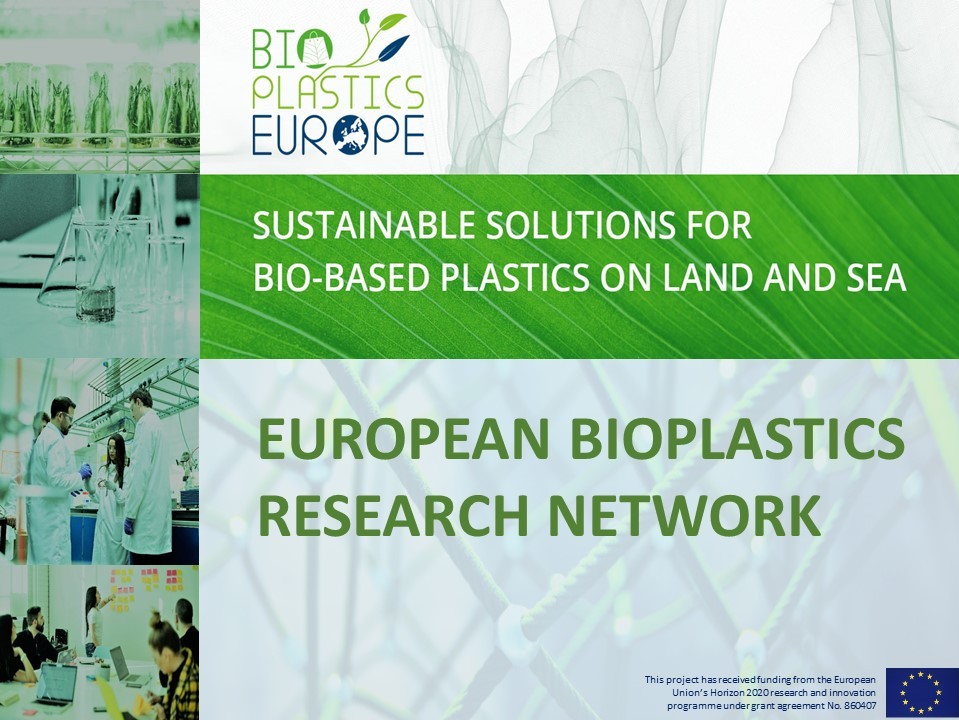Network of Science, Companies and Politics for the Research and Development of Bio-based Plastics Gets Underway
The pollution of oceans and landscapes by plastic waste is increasing dramatically worldwide. The avoidance of conventional plastics is therefore becoming more and more urgent. Scientists and companies from all over the world have now joined forces in the European Bioplastics Research Network to find alternative solutions with the support of politicians. The online conference "Past and Current H2020 Projects Joined in Bioplastics Research" on 24 June 2020 was the kick-off to present first results and to improve networking. Almost 100 international researchers, company representatives and political decision-makers from Europe came together virtually at the Hamburg University of Applied Sciences on the initiative of the EU-funded research project BIO-PLASTICS EUROPE to discuss how research and the introduction of bio-based and biodegradable plastics can be advanced. "Bioplastics will contribute to reducing carbon consumption," emphasised Christian Schulz, EU project manager at the European Bioplastics e. V., and demanded: "To achieve this, we need better coordination of research funding and legislation, and a more consistent exchange between projects that have already been completed and those that are currently underway." Dr. Andrew Farmer, Head of Industry, Waste and Water Programme at the Institute for European Environmental Policy (IEEP), also explained how important it is to influence policy. His institute therefore tries to reach EU leaders through events and targeted communication activities. Dr. Farmer said: "The development of guidelines for bio-based plastics requires clear commitments: What problems are being tackled with these materials? What tools are needed to support or control production, use and/or end-of-life management?" Therefore, the results of the recently completed PolyBioSkin and BIO4SELF projects attracted particular attention: "It was interesting for us to hear how many bio-based and biodegradable products were developed within the two projects," said Dr. Jelena Barbir, initiator of the event. These ranged from fibre-based, non-textile materials, for example for household electronics or automotive engineering, to applications in the hygiene, cosmetics or medical sectors. In contrast, there was still a need for research into sustainability and recycling. At the same time, there was also good advice for the following projects: "Include the entire value creation chain in your considerations and planning if you want to introduce bio-based innovations," said Dr. Guy Buyle, Manager EU Research of the Belgian research centre Centexbel, which deals with the processing of plastics, among other things. The meeting was followed by a presentation of current projects: BIO-PLASTICS EUROPE is looking for sustainable strategies and solutions for bio-based materials in order to effectively support the EU plastics strategy including recycling management. At ECOXY, research is carried out on bio-based epoxy resins and fibre reinforcements for the production of sustainable thermoset composites and their recyclability. The SEALIVE team is developing bio-based plastic solutions as a viable alternative to disposable plastics to reduce plastic waste and contamination on land and in the sea. "There is a need for further research into the selection of sustainable raw materials in all projects," summarized Dr. Barbir. The development of environmentally friendly additives and recycling options must also be developed and reviewed. "There remains enough to do for all of us!" The importance of networking between the projects was also enlightened by EU representatives Nila Petralli and Dr. Silvia Maltagliati. "Research and development work on bio-based plastics should promote the production and use of materials and products along the entire value creation chain," said Dr. Maltagliati. To support this process, the EU research and innovation programme Horizon Europe will be established as the successor to Horizon 2020 from 2021.



